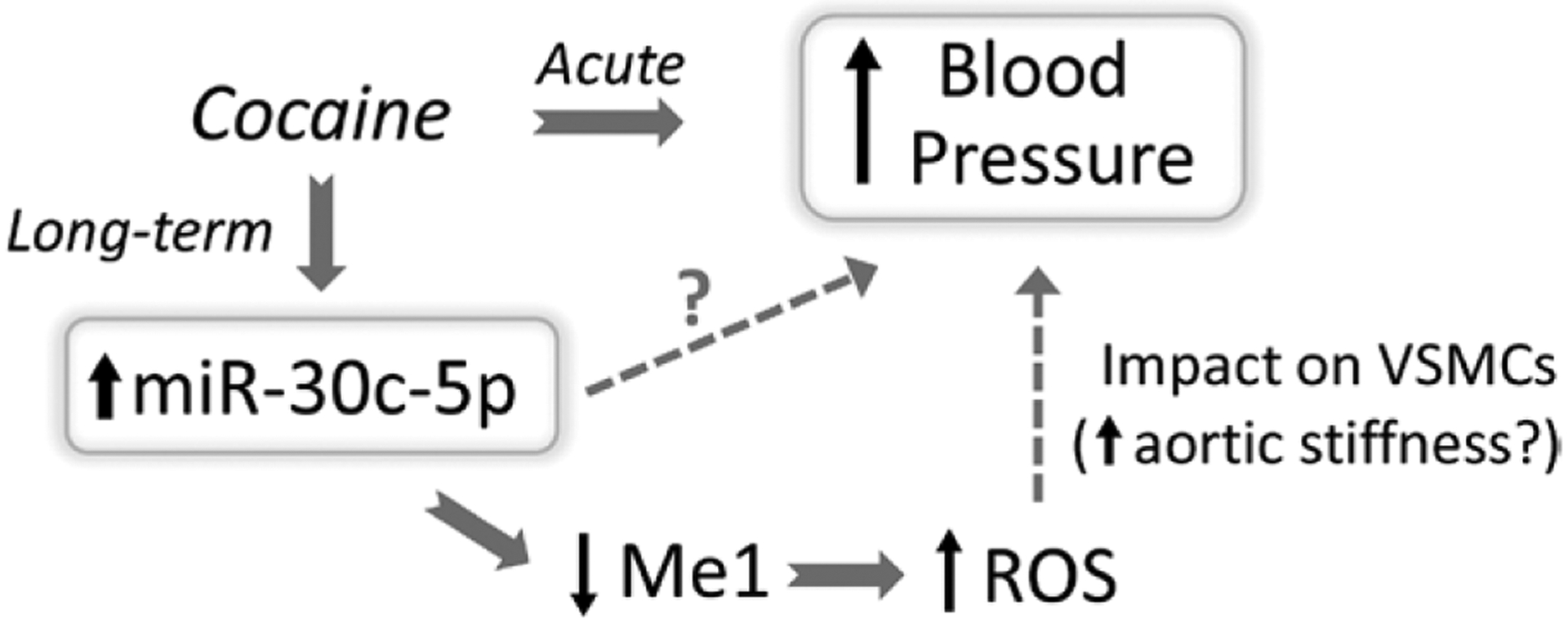Figure.

The molecular pathway by which cocaine use may contribute to the development of hypertension. Distinct from cocaine’s acute hypertensive effect, Zhu et al6 propose a cocaine-responsive miRNA (miR-30c-5p) in vascular smooth muscle cells (VSMCs), which may contribute to the development of chronic hypertension in a rat model of daily cocaine administration. The authors suggest that stimulation of miR-30c-5p in VSMCs by cocaine downregulates the antioxidant molecule, Me1 (malic enzyme 1), resulting in elevated reactive oxygen species (ROS). The generation of ROS in VSMCs was associated with enhanced aortic stiffness and hypertension. The authors acknowledge that miR-30c-5p may modulate the expression of other transcripts in VSMCs that elevate ROS and promote the long-term elevation of blood pressure.
